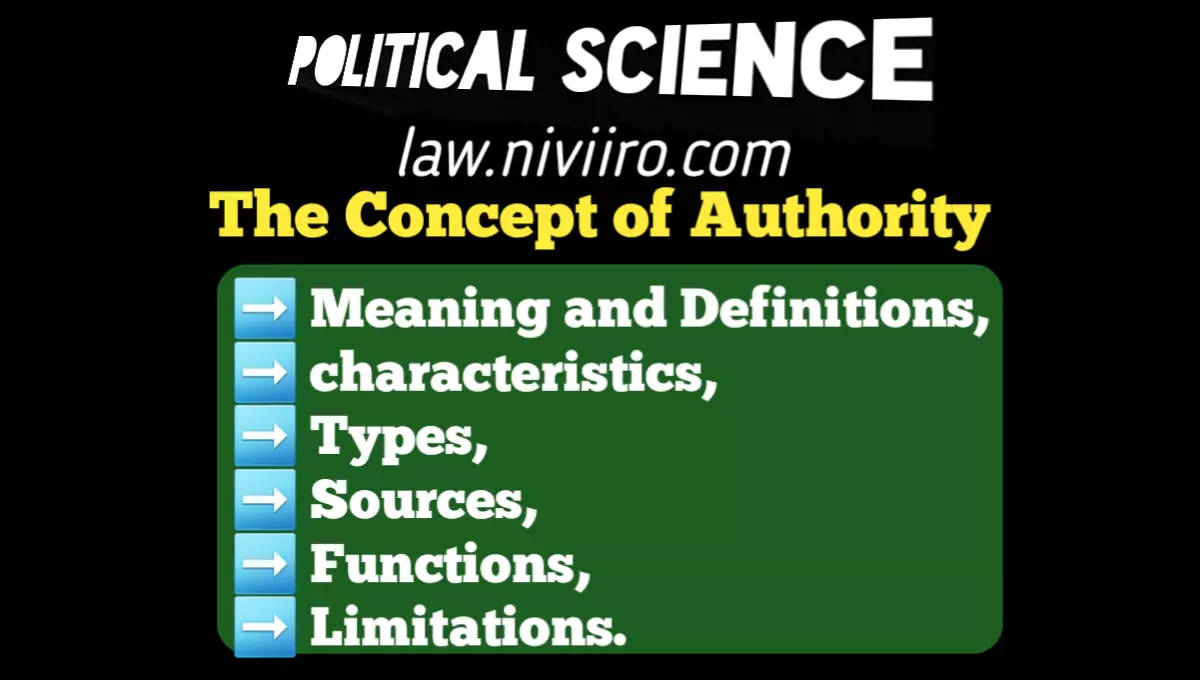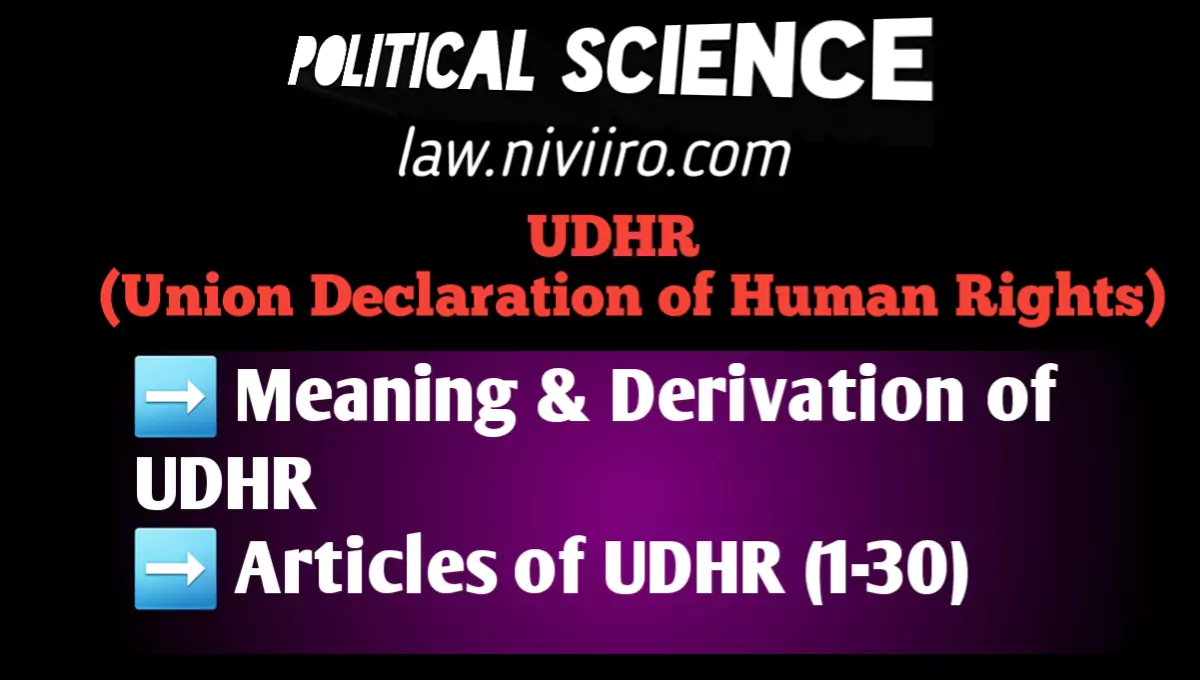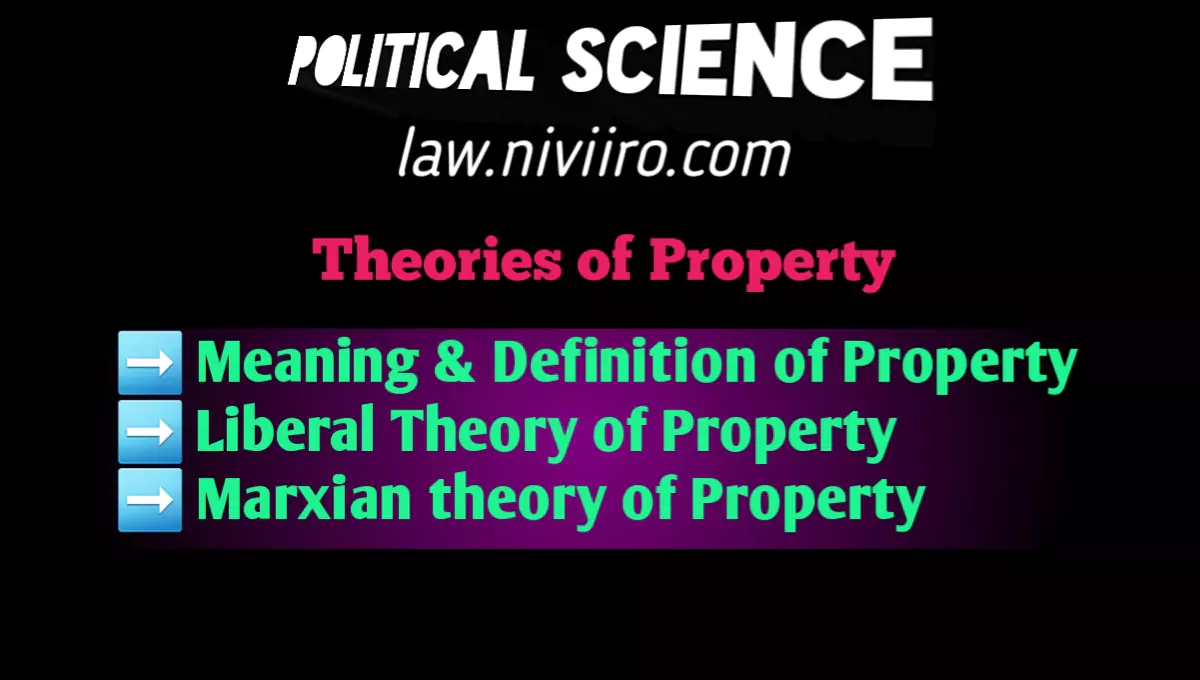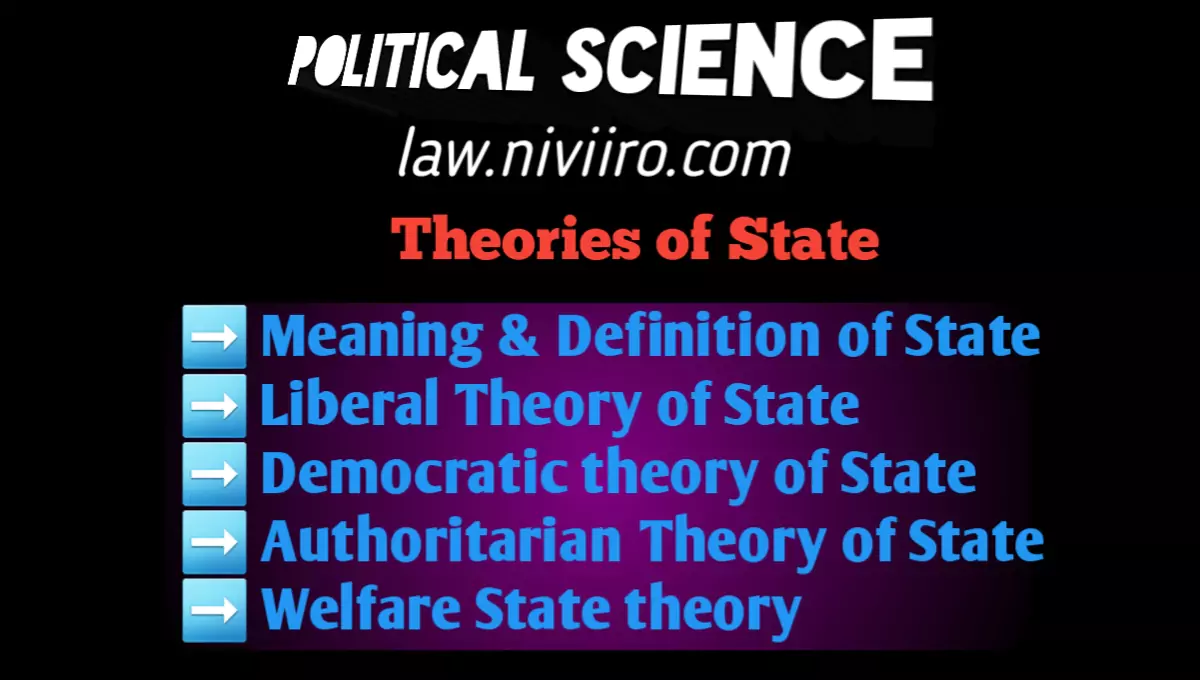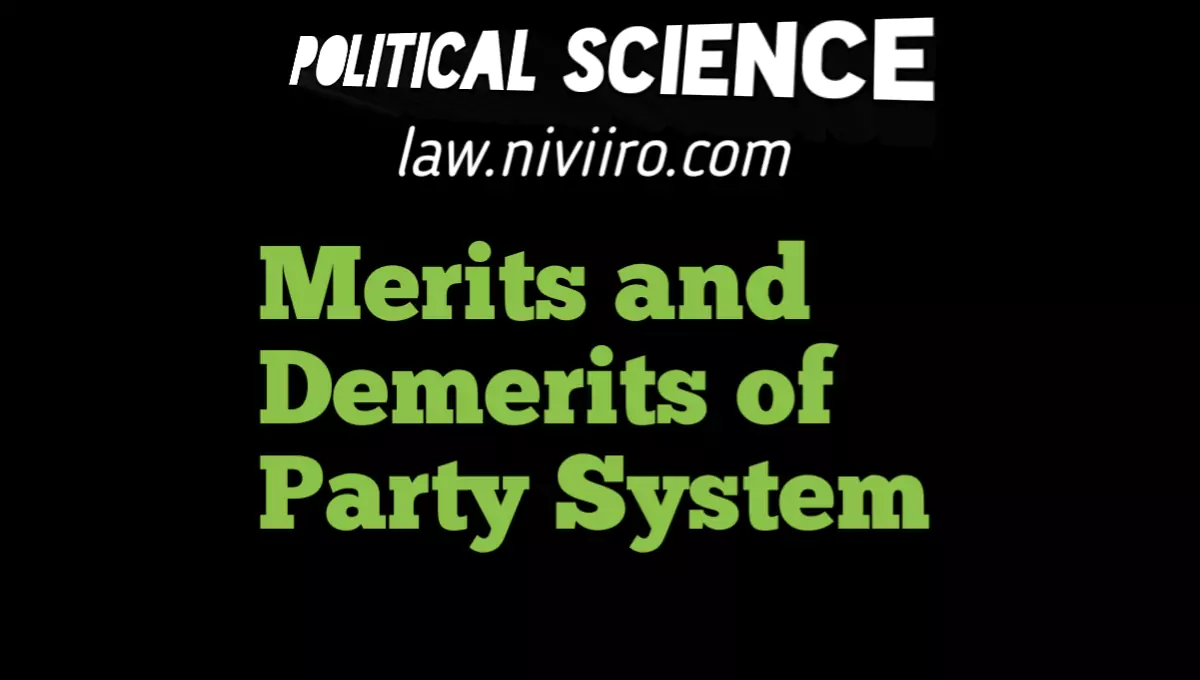In an organisation, the role of ‘Authority’ is similar to the role of the soul in the human body. It is the key to administrative work. Authority is the lifeblood of any political organisation, large or little. Authority is legal or proper power, the right to command or act. It is the power to tell others to do or not do anything that the bearer of the authority believes appropriate and necessary to fulfil the organization’s objectives.
This concept of authority includes the ability to inflict sanctions and coerce, because without the ability to execute an order, the organisation would become chaotic and anarchy would ensue. Authority is thus a binding force in organizational integration.
The Meaning and definitions of Authority
The term authority derives from the ancient Roman concept of ‘Auctor’ or ‘Auctoritos,’ which meant to elaborate or expand. Authority is the ability to sensibly secure and elaborate a synthesis of wishes, determination, or liking. Authority is a position that a person obtains as a result of his role and position in an organised social organisation.
One of the basic notions in organisational theory is the concept of authority. It is the foundation of all formal organisations. The right to command or act is referred to as authority. The authority of a superior over his subordinate is the connecting pin between them.
Some of the important definitions of the Authority are as below:
- Henry Fayol, “Authority is the right to give orders and power to exact obedience.”
- Allen : “Authority is the sum of the powers and rights entrusted to make possible the performance of the work delegated.”
- Theo Haimann: “Authority is the rightful legal power to request subordinate to do a certain thing or to refrain from doing so, and if he does not follow these instructions, the manager is in a position, if need be, to take disciplinary action, even to discharge the subordinate… without authority only anarchy and chaos would result.”
- Herbert A. Simon, “Authority may be defined as the power to make decisions which guide the actions of another. It is a relationshin between two individuals, one superior, and the other subordinate. The superior frames and transmits with the expectation that these will be accepted by the subordinate. The subordinate executes such decisions and his conduct is determined by them.”
- Chester Bernard—”Authority is the character of a communication (order) in a formal organisation by virtue of which it is accepted by a contributor to or ‘member’ of the organisation as governin the action he contributes.”
- Beach has said, “Authority is the legitimate authority to effect and direct the performance of other’s works.”
- Biersetdt said, “Authority is an institutional right to use power; it is not power in itself.”
As a result, the authority relationship can be characterised in completely objective and behavioristic terms. It entails actions on the part of both the superior and the submissive. Only when those behaviours occur does a relationship of authority between the two people involved exist. There is no authority when the behaviours do not occur, regardless of the ‘paper’ notion of organisation.
Characteristics of Authority
From the above definitions, the following characteristics of authority may be inducted.
1. There is the ‘existence of right’ in authority, which places the executive in a position where he can direct his subordinates to act or not act in particular ways.
2. Making choices and ensuring that they are carried out is how authority is exercised.
3. The use of authority may be used to manage unfavourable characteristics of behaviour.
4. Authority is regarded as the embodiment of logic. “The man with authority possesses something that I would define as the capacity for reasoned elaboration for offering convincing explanations for what he does or offers to have others do,” Fredrick says.
5. The right to give orders is legitimate.
6. Another aspect of authority is accountability or responsibility. The individual or group with authority is also accountable to a higher authority. In a democracy, authority cannot exist in the absence of accountability.
7. The use of authority is determined by the possessor’s personality traits.
8. Authority is not Formal Power– “Authority is closely related to power but it is not power in itself. It’s also not a source of power.” “Authority is not a power, but something that comes with power,” says Fredrick.
9. It is based on hierarchy – Authority flows from the top to the bottom, while accountability flows from the bottom to the top. A superior officer has the authority to issue orders to his subordinate.
10. Another characteristic of authority is that one who want to be an authority must attempt to dominate, and this dominance must be accepted by others. The superior’s command to their subordinates, which they accept, is referred to as authority.
11. Consent can be used to establish authority. It stems from power’s readiness to accept power’s exercise without direct compulsion.
12. Authority requires legitimacy. The effectiveness of authority is determined by legitimacy.
Types of Authority
There are three types of authority in most of the organisation:
(i) Line Authority – A superior exercises direct command over a subordinate in the line authority. Line authority is represented by the standard chain of command, which begins with the board of directors and extends down through the hierarchy to the point where the organization’s basic functions are carried out.
(ii) Staff Authority – Staff authority is mainly advisory in nature. Only the ‘authority of concept’ is granted to a staff officer. The information or plans that a staff officer provides flow upward to his line supervisor, who chooses whether they are to be implemented.
(ii) Functional Authority – Functional authority sits somewhere between line and staff authority. It is a method of elevating staff specialists to top positions for the entire organisation, and it grants holders limited authority over the employees in their departments regarding their role. Functional authority is granted to those in control of various functional areas in order to empower them to maintain the quality and uniformity of the function throughout the organisation, in addition to line authority over their own subordinates. Functional authority is still limited to providing functional direction to different departments.
Sources of Authority
A few theories of authority have been developed over the years these are:
(i) Formal Theory-Formal theory holds that it is right to give commands. According to this school of thought, the constitution is the ultimate source of authority. Because the constitution is a creation of the people, susceptible to change and alteration by the will of the people, society, through government, is the source from which authority emanates. Thus, the Formal Authority Theory regards authority as power passed from basic institutions to the particular administrator. The organisational hierarchy is formed by the movement of authority from superior to subordinate.
(ii) Acceptance Theory-The Acceptance theory of authority was advanced by Chester Bernard in his book, Function of the Executive. According to him, effective authority is dependent on the permission or acceptance of those who must obey it. In his system of things, power goes from the bottom up—that is, from those who are governed to those who govern.
A manager or administrator has authority to the extent that his subordinates accept and obey it. If subordinates refuse to carry out a manager’s orders, it indicates that the management lacks effective power to issue such orders. By virtue of their acceptance, the superior acquires effective authority from his subordinates.
(iii) Competence Authority-Along with the formal and accepting theories of authority, although possibly more directly tied to the latter, is the view that authority is formed by human traits of technical competence. This category includes those who have influenced others through sheer force of personality, such as engineers or economists, by providing answers or excellent advise. These may not have actual authority, but their advise may be sought and followed with such zeal that it appears to carry the weight of an order.
Functions of Authority
Three functions of authority according to Herbert A. Simon are:
i. It imposes individual responsibility on those who wield authority- The subordinate who accepts the authority of the superior is motivated to a large measure by the fear of sanction. He is aware that if he disobeys, he may face a complex series of consequences.
ii. It ensures expertise in decision-making—One of the most essential functions of authority is to enable the enforcement and execution of expert advice provided by specialists inside the organisation.
iii. It allows for the centralization of decision-making and activity coordination-By exercising authority, it is possible to centralise decision-making and force all members to make mutually consistent decisions.
Limitations of Authority
There are several restrictions, and limitations to the concept f authority. Authority is limited like all social institutions, by such restrictions as our codes, mores and laws.
These limitations are:
1. Psychological limits executive cannot decide and impose an activity that is not physically or intellectually possible for the subordinate.
2. Biological limits are biological constraints that limit power simply because humans lack the ability to accomplish certain things.
3. Natural limits-Climate, environment, geographical condition, natural disasters, and other factors all limit authority.
4. Legal limits—The superior is bound by the law of the country. The superior cannot make such directives to subordinates because it is against the law. There are numerous laws that limit the executive’s authority.
5. Technical limits-Modern age is technological age, which requires specific skills. If a person lacks the necessary skills, he will be unable to exercise his authority efficiently.
6. Economic limits executive’s authority is constrained by the organization’s available financial resources since he must exercise his authority within these constraints.
7. Other limits-The other means to limit the authority are social traditions and usages, group behaviour, general public, trade unions etc.
Related Post
Define Authority ?
Henry Fayol, “Authority is the right to give orders and power to exact obedience.”
Allen : “Authority is the sum of the powers and rights entrusted to make possible the performance of the work delegated.”
What are the basic Characteristics of Authority ?
1. There is the ‘existence of right’ in authority, which places the executive in a position where he can direct his subordinates to act or not act in particular ways.
2. Making choices and ensuring that they are carried out is how authority is exercised.
3. The use of authority may be used to manage unfavourable characteristics of behaviour….
Types of Authority ?
(i) Line Authority,
(ii) Staff Authority,
(ii) Functional Authority.
What are the Functions of Authority ?
i. It imposes individual responsibility on those who wield authority,
ii. It ensures expertise in decision-making,
iii. It allows for the centralization of decision-making and activity coordination.
References
- Foundations of Political Science, Dr. Sunita Gangwal
- M.P. Jain, Political Theory liberal and Marxiam
- J.C. Johari, Political Science
- Prof. H.C. Verma, Modern Political Theory
- Prof. S.L. Verma, Modern Political Theory
- R.C. Agarwal, Political Theory
- V.D. Mahajan, Political Theory













